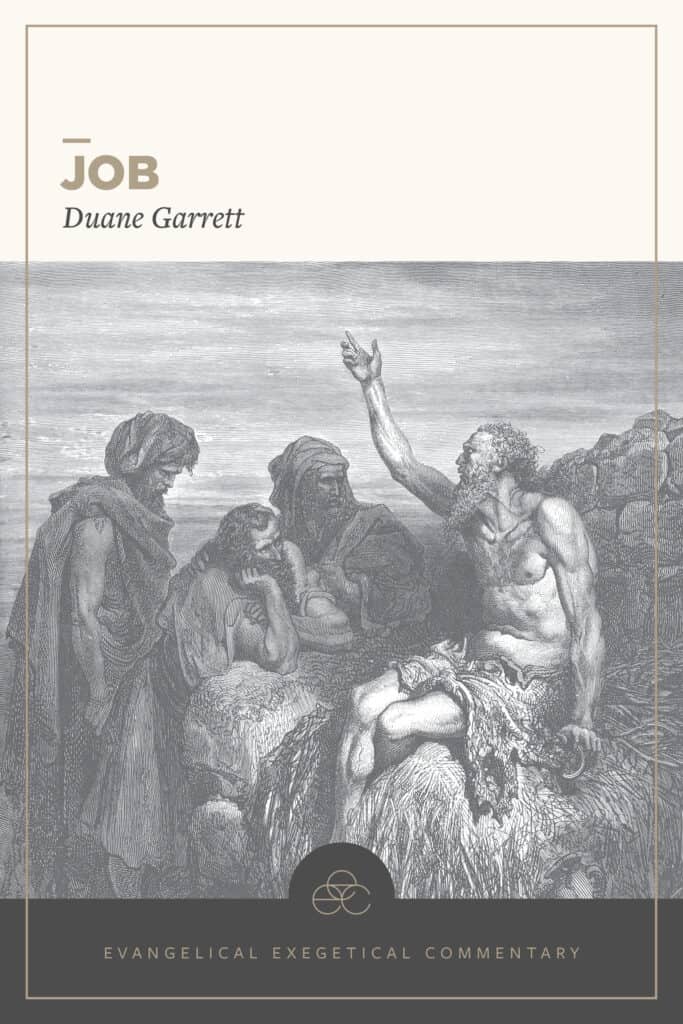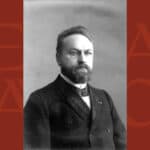


Michael Burer and Duane Garrett are the authors of Galatians and Job, two new volumes in the Evangelical Exegetical Commentary series.
In our interview below, the two authors reflect on the long process of writing an exegetical commentary.
Michael H. Burer is dean of faculty development and professor of New Testament studies at Dallas Theological Seminary. He is the author of Divine Sabbath Work and A New Reader’s Lexicon of the Greek New Testament (with Jeffrey E. Miller).
Duane A. Garrett is the John R. Sampey Professor of Old Testament Interpretation and professor of biblical theology at The Southern Baptist Theological Seminary. He is the author of many books, including The Problem of the Old Testament: Hermeneutical, Schematic, and Theological Approaches.
Lexham Press: Can you tell us the story behind these two commentaries and what are their basic theses?
Michael Burer: This book is a commentary on the Greek text of Galatians. I wrote it truly in keeping with the series title: It is evangelical in that I hold that the Bible is God’s inspired word, authoritative for Christian doctrine and practice. It is exegetical in that the explanation I undertake follows exegetical method traditionally known as grammatical, historical interpretation. Galatians is a pastoral, personal, and practical letter written by Paul to accomplish a very serious and urgent goal: returning the Galatian churches to a proper understanding and practice of his gospel so that they would welcome Gentiles into fellowship with open arms with no requirement other than faith in Jesus Christ.
Duane Garrett: This book comes out of a fascination I have had with biblical wisdom literature throughout my career. The commentary is a capstone, coming after my previous work in Proverbs, Ecclesiastes, and Song of Songs. The thesis of my book is that Job engages the problem of theodicy and demonstrates that traditional wisdom categories are not adequate to address the greater theological problem of evil. This problem is resolved only by the hidden wisdom of God, which is Christ.
LP: What contribution do you hope to make with your books?
Burer: I want readers to see the simplicity of the gospel: how it was the only message Paul proclaimed and the only message necessary for living out God’s desires for believers. I also want readers to see its depth and richness: how the gospel proclaimed salvation through a crucified and risen Jesus alone, how it was accessed through faith alone, how the gospel was sufficient to answer how Jews and Gentiles should relate in the Church and how the church should live in community.
Garrett: I hope that my commentary demonstrates that Job answers the question of theodicy in a way that is fulfilled in Christ. I believe that Job also shows both the value and the limitations of traditional wisdom teaching. The commentary demonstrates how the wisdom teachings espoused by Eliphaz, Bildad, Zophar, and Elihu is not wrong but inadequate. It also shows that these characters are not the heroes of the book, as some have claimed. I also believe I have given the speech of God a treatment that explains what point he is making with his many references to creation and the animal kingdom. I believe I have made real contributions to the translation of Job, as I have many original takes on the Hebrew.
LP: Tell us of a particularly surprising or enjoyable aspect you discovered while writing your books?
Burer: I am convinced that Galatians was the first of Paul’s epistles. As such, it is the starting point for so much of his theology that gets discussed and developed more fully in his later books. This cuts two ways. On the one hand, there are aspects of his theology that are already very mature and developed. The content and implications of the gospel is one such example. Paul already has a robust understanding of what Christ’s death accomplished for believers and how they should live in light of it. So he developed this understanding early in his Christian life, and it acted like a lodestar for the rest of his theology. On the other hand, this allows us to refine some commonly held theological truisms about Paul. Take for example his concept of “flesh.” This is routinely understood to always be in Paul something akin to the sinful predisposition in the human person. But this doesn’t take into account that in Galatians this is the first time he addressed the issue with people who truly wanted to do something to their flesh. Paul’s topos of flesh in Galatians is nascent and primitive. He discusses the nexus of the human body and sinful tendencies for the first time here! Recognizing this allows us to understand Paul in a fresh way when he talks about the power of the flesh.
Garrett: Wrestling with the Hebrew of Job was a challenge but also very satisfying.
LP: Last of all, please share something surprising about yourself that only your friends would know?
Burer: I have a second degree black belt in karate.
Garrett: I study French as a hobby, and to improve my French listening skills, I sometimes watch the children’s show Miraculous Ladybug. I am also a big fan of Korean dramas.






